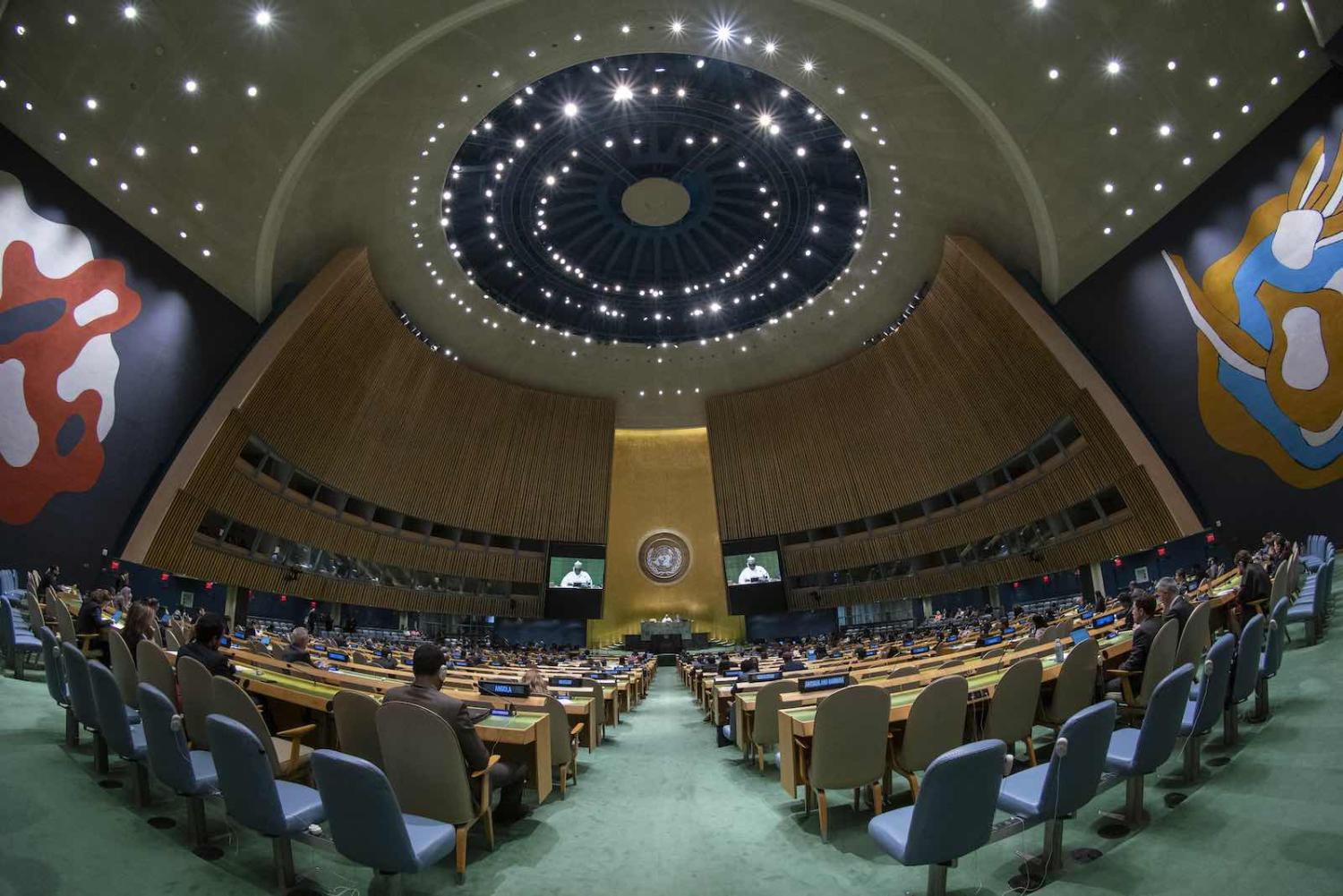Regardless of whether recovery from Covid-19 occurs over a short or medium-term period, it’s clear the experience will have a lasting impact on diplomacy and global governance. Covid-19 has sped up transformations stemming from long-term trends in foreign policy management, multilateral governance administration and digital technology use. With inevitably tighter budgets, foreign ministries will face some tough choices over the coming years.
First, Covid-19 has furthered the long-term trend of increasing executive power over foreign policy decision-making and administration. The trend can be seen across the majority of countries in any number of metrics, from the balance of political appointees versus career professionals in ambassadorial appointments to the size of departmental budgets. Obviously, it has been more intense in certain countries than others – and exacerbated by inappropriate communication strategies and social media.
Covid-19, much like the immediate crisis decision-making responses following the terrorist attacks of 11 September 2001, necessitated greater executive control over foreign policy. But also, like terrorism, the threat from pandemic disease may never fully disappear, meaning decision-making practices passed over to the executive are likely to remain there.
Second, Covid-19 has brought out growing dissatisfaction with multilateral governance. There’s long been recognition that the current system of global governance doesn’t fully reflect strategic realities (G7/8, OECD), is increasingly unable to achieve its aims (WTO, WIPO), is political more than practical (WHO, UNHRC), and has become bloated, inefficient, and corrupt (UN, FIFA, IOC).
The days of diplomatic travel, hotels and restaurants, to attend what most publics see as a pointless political talkfest, will be replaced by late night zoom sessions, document sharing software and food from the local takeaway.
There’ll be no better display of this than the UN General Assembly debate where global leaders speak in September.
Normally, the largest event on the multilateral calendar, attended by massive executive, foreign ministry, and media delegations, the UNGA General Debate leaders’ presentations will this year be replaced by pre-recorded video and/or online presentations with only diplomats already in New York present – the first ever “virtual General Assembly”. After this event, the biggest question asked will be “why haven’t we been doing this for the last 20 years?”. The days of diplomatic travel, hotels and restaurants, to attend what most publics see as a pointless political talkfest, will be replaced by late night zoom sessions, document sharing software and food from the local takeaway.
Third, Covid-19 has forced even resistant foreign ministries to adapt to digital technology. To begin with, the implementation of digital practices proved difficult and frustrating. Digital diplomacy gives fewer opportunities for networking, off-the-record floating of ideas, and using non-verbal signals. Additionally, individual diplomats have faced challenges and disruptions to professional and family life with quarantine and travel restrictions. But over time, these practices are becoming more routine.

Preferred techniques are being shared and improved, new skill sets are being developed and personnel training strategies implemented, and new job roles and specialisations are being created. Perhaps most importantly, the use of digital technologies are becoming viewed as more practical, efficient, and time saving.
Wholesale adaptation to an online environment presents cost-savings that would be impossible in an all in-person environment. The more time spent in the digital diplomacy environment, the less likely foreign ministries will return to previous practices. As has been noted by commentators in the education, business, and retail fields, the changes precipitated by Covid-19 are here to stay.
Finally, most foreign ministries will face budget pressures over the next five years. There will be less travel and overseas nationals, meaning a less supportive constituency. With much of their work hidden and/or difficult to assign to performance indicators, foreign ministries have always been targets for budget cuts. Add to this increased executive power over foreign policy, growing dissatisfaction with multilateral governance, and potential cost-savings from continued use of digital technology practices, and the calls for budget cuts to foreign ministries will increase.
Together, these changes suggest policymakers will need to make hard decisions across a range of activities – including on initiatives that have come to be seen as routine. For Australia, MIKTA serves as an example.
Australia joined the informal partnership with Mexico, Indonesia, Korea, Turkey with the aim to build a coalition within the G20. Highly optimistic commentators immediately jumped to support the initiative on the hopes of a “middle power revival” to save global governance. Seven years later, the G20’s relevance as a platform for addressing global issues has declined. Hopes for a middle power revival have dissipated, and Australia and South Korea now aim to secure more direct influence by joining an expanded G7/G8.
In exculpatory anticipation, the Department of Foreign Affairs and Trades’s MIKTA website page answers the question “Why MIKTA?” with public service doublespeak, noting that members both “share important fundamental values and interests” and “diversity … to build consensus”. For practitioners, having any platform to work with non-traditional partners, and work ever more closely with traditional partners is important and serves a purpose. For those looking to secure cost savings, concrete achievements matter much more. As MIKTA turns to covering issues related to Covid-19, it could also ultimately become a victim.
Even with a rapid return to normality, the trends and the changes already brought out will have an ongoing impact. Post-pandemic planning for foreign ministries has the potential to bring transformational change to diplomacy and global government.


